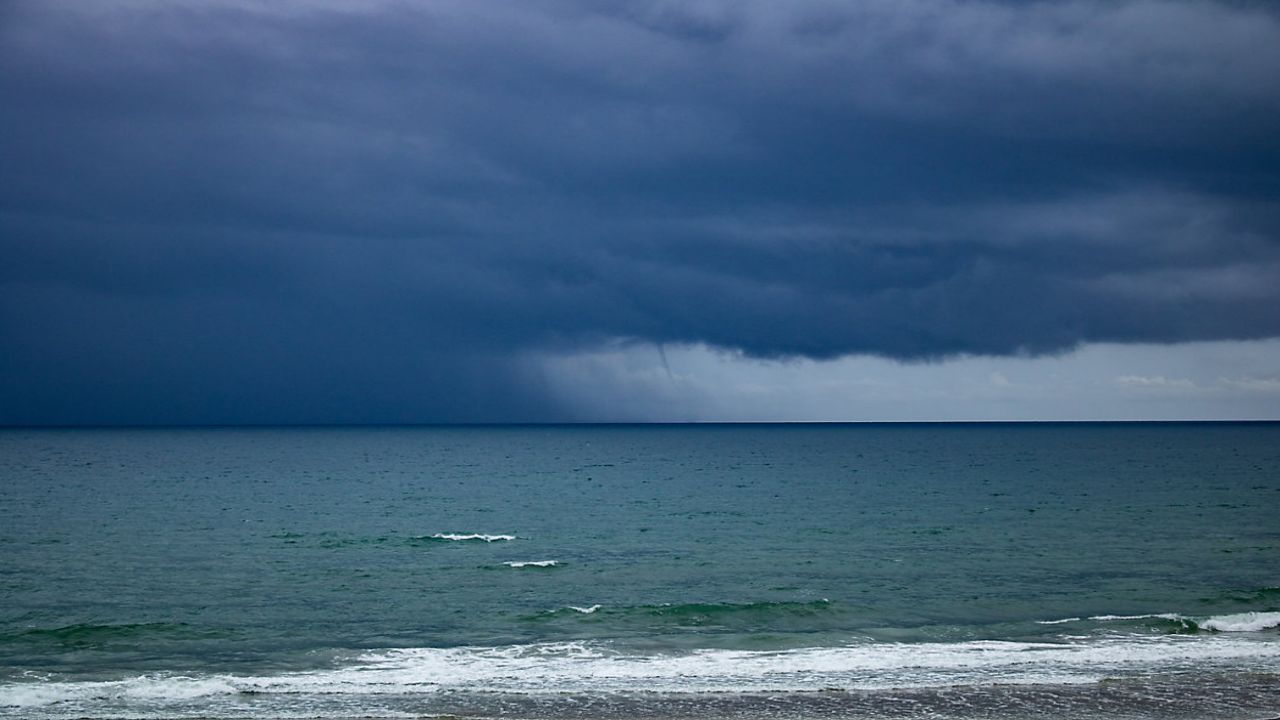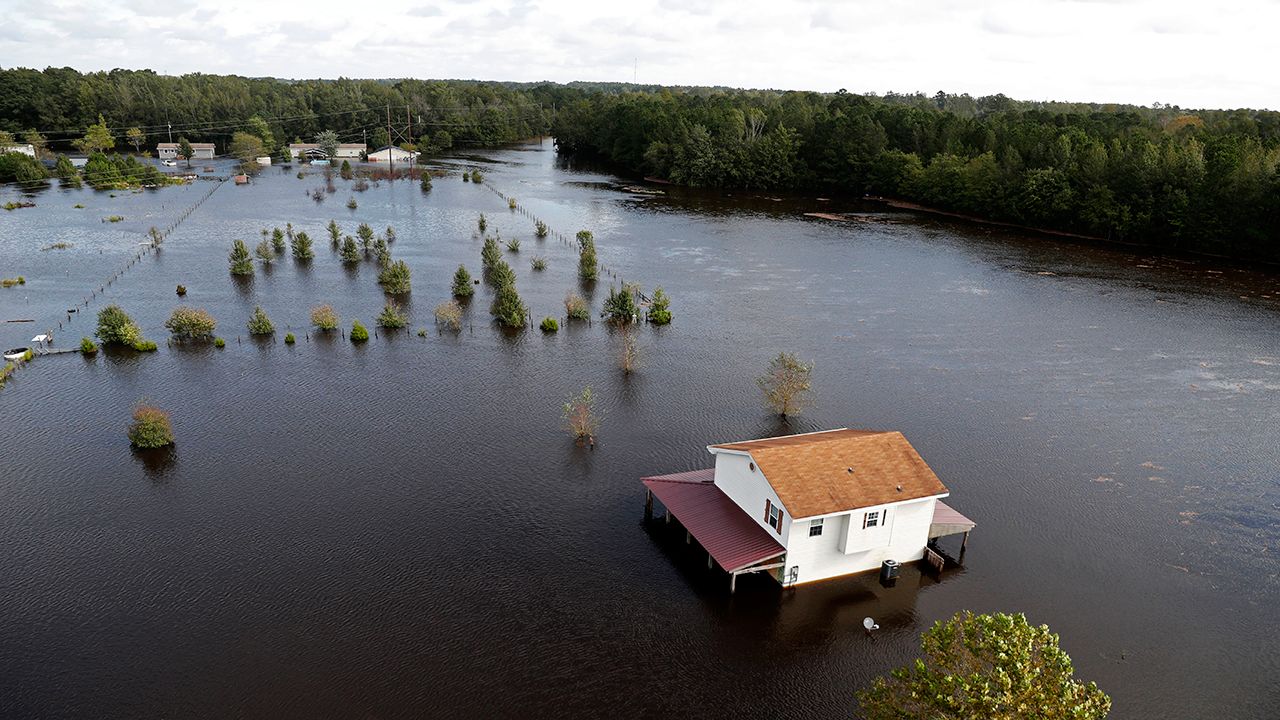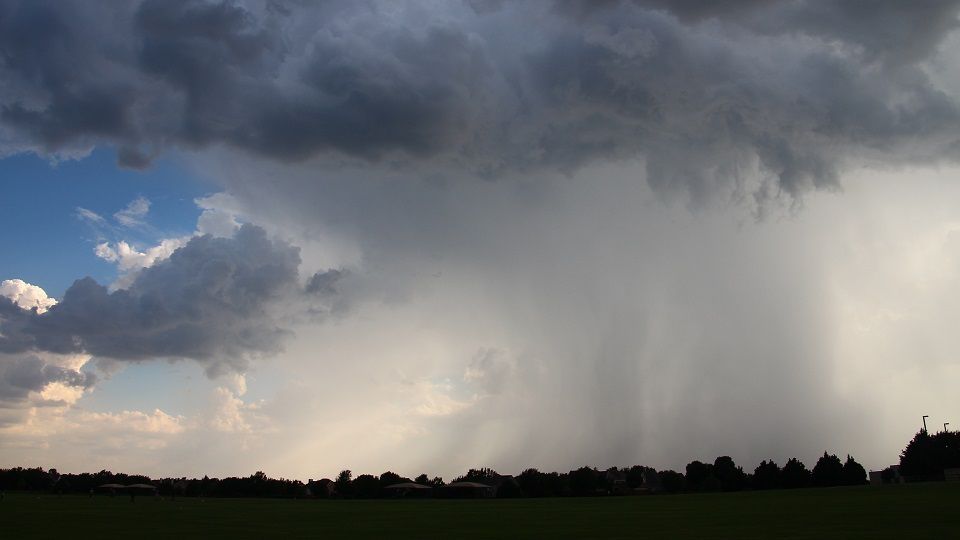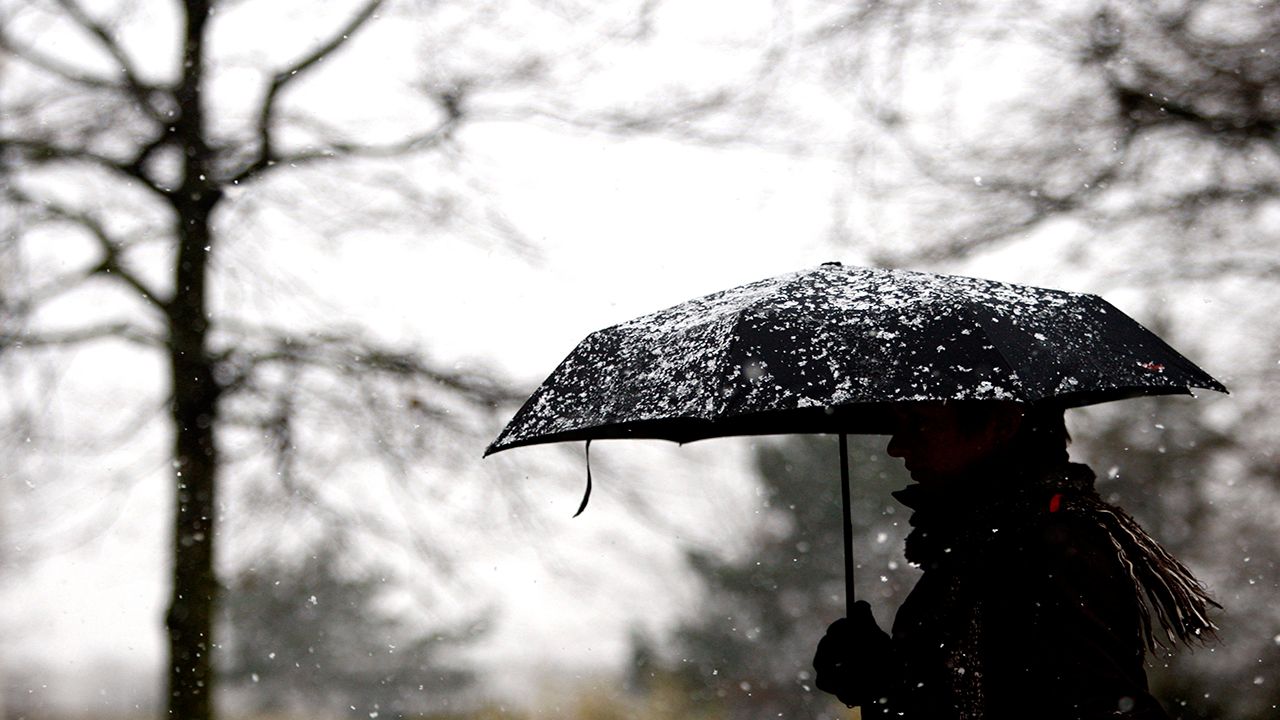On Thursday, July 8, Tropical Storm Elsa brought three tornadoes to North Carolina, including one that received an uncommon tornado rating of EF-U.
What You Need To Know
- Tornadoes are given a "damage rating" by the National Weather Service once the damage occurs. Meteorologists and emergency management agencies survey the damage to determine a tornado's strength
- Ratings typically rank from EF0, with 65-85 mph winds, to EF5, which contain winds over 200 mph.
- Tropical cyclones like Elsa are known to produce brief, weak tornadoes similar to those we saw on Thursday.
The first tornado warning prompted by Elsa occurred in Robeson county at 6:16 a.m. Thursday, and the final warning went out around 7:30 in the evening.
All told, there were 18 total tornado warnings in North Carolina that day and, as expected, all took place on the eastern side of Elsa's path.
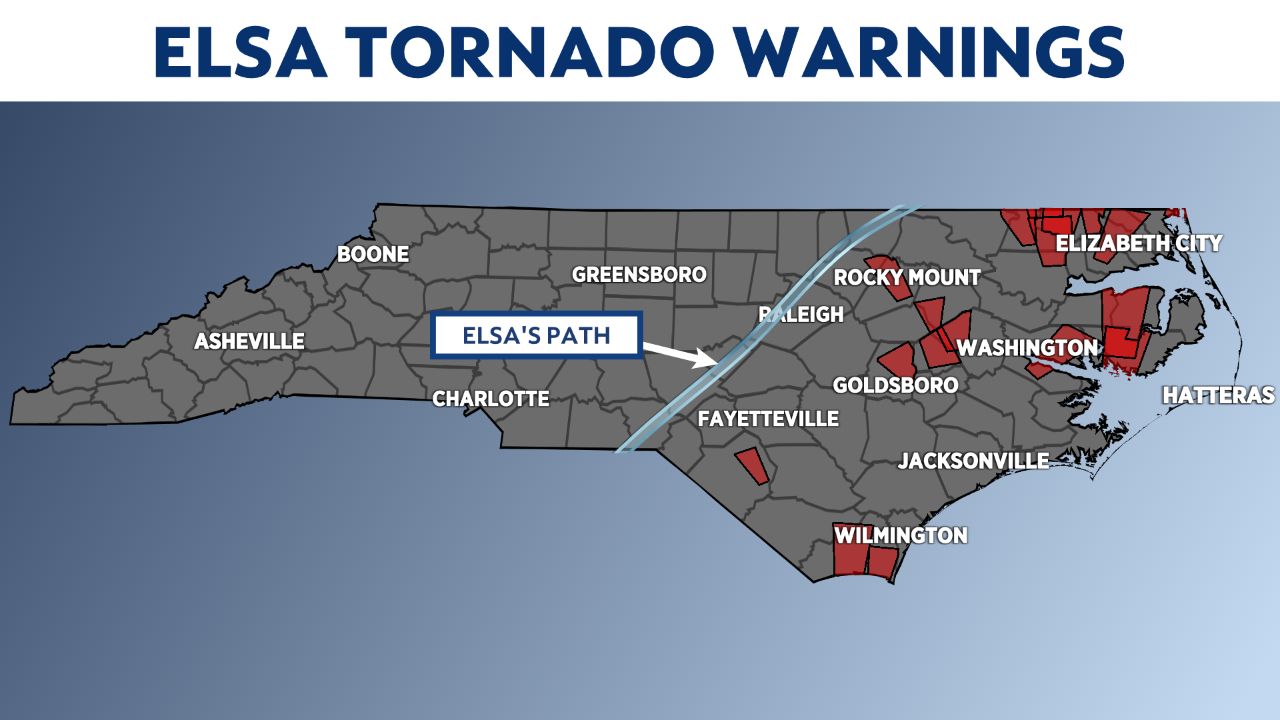
Tornadoes in tropical cyclones are common, and they usually receive low-end damage ratings because their winds seldom exceed 85 mph. One of the recent exceptions to that rule was the EF3 tornado that tore into a Bertie County mobile home park during Hurricane Isaias last year. It produced winds of 140 to 145 mph.
Of the three tornadoes that touched down in northeastern North Carolina on Thursday, two were given a rating of EF0, with only a few downed trees in the damage reports. Winds were likely less than 85 mph when those tornadoes were at their strongest.
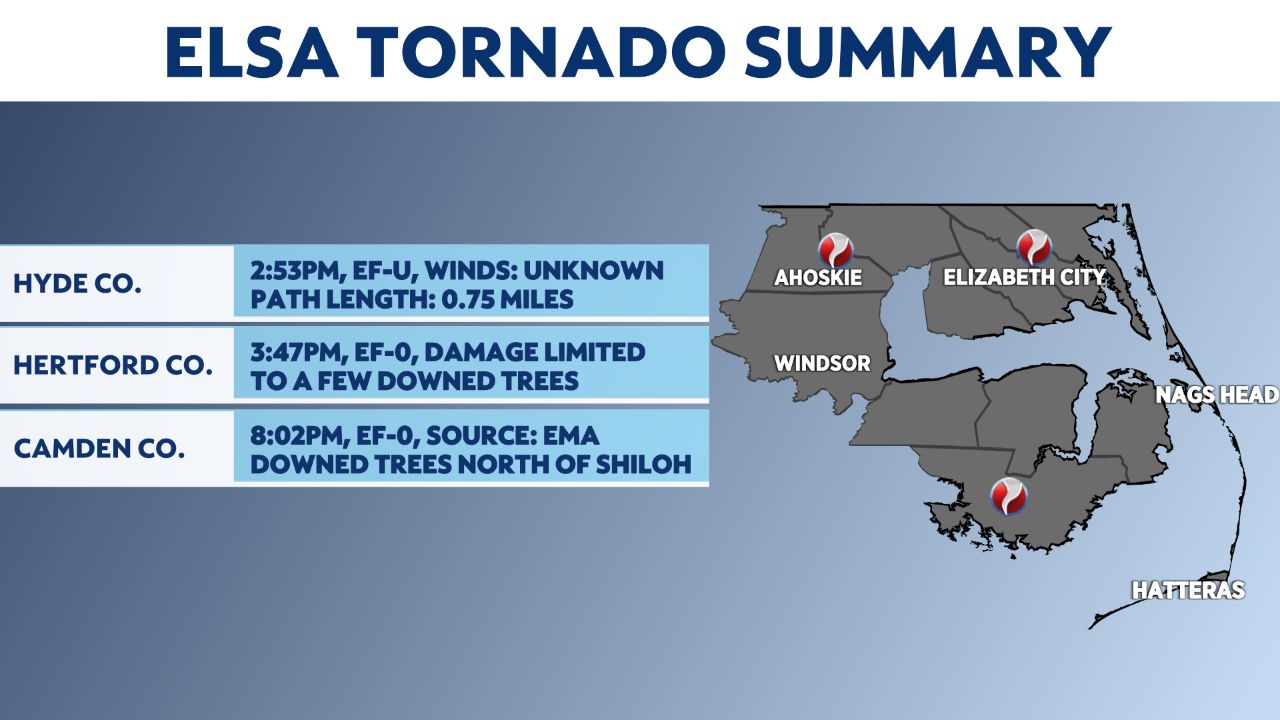
The tornado in Hyde county, where we saw radar confirm a tornado on the ground near the town of Swanquarter, received an EF-U rating. The National Weather Service posted a satellite image on Twitter showing where the tornado took place.
Update: Data from @CopernicusEU Sentinel-2 satellite shows a distinct damage path through crop fields near Hyde Corr. Inst. We can better estimate path length/width, start/end points now. However due 2 lack of structural damage, we still can't assess strength of the tornado #ncwx pic.twitter.com/7ZCo4C5QAO
— NWS Newport/Morehead (@NWSMoreheadCity) July 10, 2021
An EF-U rating means that the tornado caused no damage from which the National Weather Service survey team could assign an EF-scale rating. In fact, the estimated time on the damage survey was ultimately determined by what radar showed when the tornado took place.
Thankfully, there weren't more tornadoes on Thursday, and the tropics look quiet for now. The next tropical system will be named Fred, and until it forms in the Atlantic Basin, keep up with Spectrum News 1 for the latest Weather On The 1s forecast!





